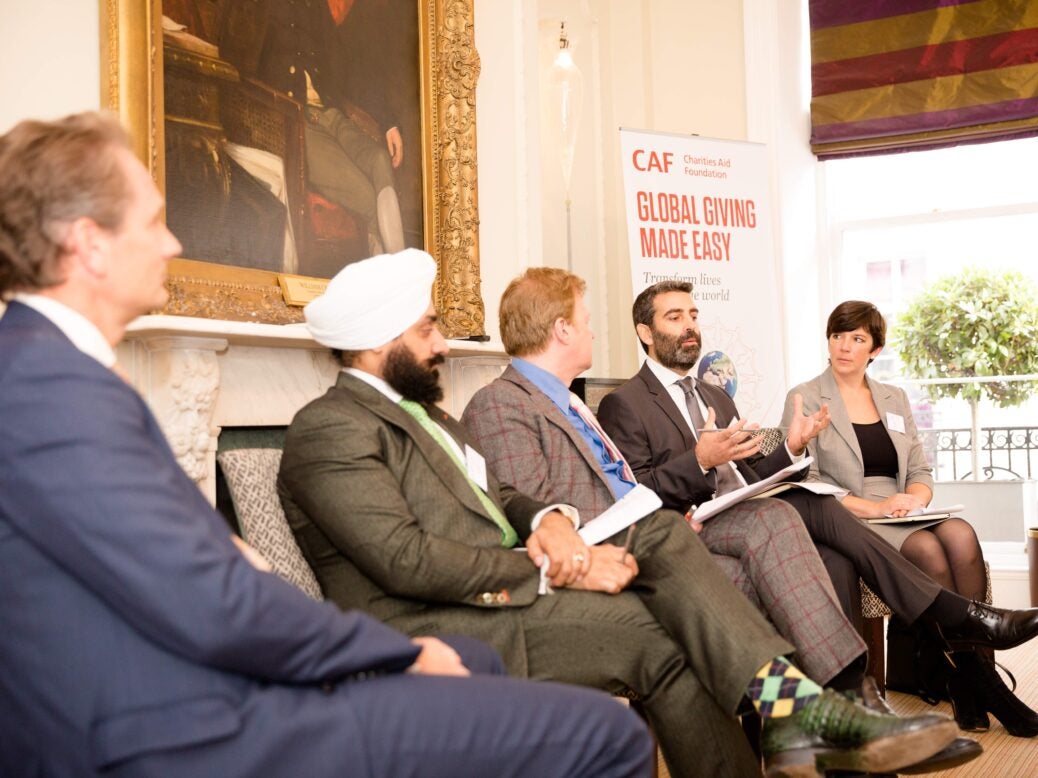
Rasika Sittamparam reports on the recent Spear’s & CAF breakfast briefing focusing on London’s role in global giving.
‘For the cure of every sorrow… there are patrons, vice-presidents and secretaries… For the diffusion of every blessing… there is a committee,’ wrote Sir James Stephen, the British under-secretary of state who drew up the Slavery Abolition Act of 1833. Such was the diversity of the philanthropic movement in Victorian London, which David Stead, the executive director of philanthropy at Charities Aid Foundation (CAF) describes as both ‘creative and innovative’.
That legacy of giving continues today, he explained at the recent breakfast briefing hosted by Spear’s and CAF at Brown’s Hotel, entitled The Effectiveness of Partnering in Diaspora Philanthropy. ‘Like the growth of the City, national services and philanthropy services, it has the skills and the infrastructure which makes it a global hub [for giving]. If you combine that with the fact that it’s a magnet for international wealth – there are a lot of innovative things going on and a lot of skills to support them.’
As London increasingly attracts international families who channel their wealth into the UK, the focus on philanthropy is radiating outwards too. The phenomenon of ‘diaspora philanthropy’ is one of the fastest-growing trends in this landscape, as HNWs decide to give back to communities back in their respective homelands. And Stead corroborates this by observing that this emerging group of givers makes up over 10 per cent of CAF’s clientele of 300,000 individuals, 700,000 corporate donors and over 70,000 charities worldwide.
Giving outside your geographical comfort zone can be a daunting task for many wealthy individuals, but it is often a risk that brings forth rewarding benefits and a large and positive social impact to the communities involved.
Such had been one panellist’s experience in giving back to his ancestral homeland, India. Professor Peter Virdee, a property entrepreneur and the founder of the Virdee Foundation, remembered one operation he had funded to help child labourers out of the ‘cycle’ of abuse by their families.
The charity was shut down by the police, under pressure from local businessmen who had managed to convince politicians that it was harming their factories. The charity was finally allowed to resume and is now funding the schooling of over 600 children. ‘It’s not an easy task, it’s not an easy subject to support,’ Virdee said, but ‘as a foundation we enjoy doing things that are not easy, that really pay high dividends at the end of it.’
When creating social impact, he argued, it’s important to establish who your philanthropic partner is at an early stage: ‘We meet the NGO, we understand what they’re doing. We then get into the DNA of what they’ve done so far, what they’re about, how they spend their money, who does it impact, and really do a thorough report on that.’
Like Virdee, Paul Kidner (another panellist) also knows the challenges involved in creating social impact. With over twenty years’ experience in business development, the general manager at People’s Trust, an Anglo-Greek charity and NGO, is on a mission to alleviate unemployment in Greece since its recent economic crisis. ‘It has been very difficult for businesses, for private people,’ he says. ‘One of the things we want is to help businesses grow… through financing, business development services that we provide, consulting and support, mentoring and coaching.’
And the most difficult aspect of his project is the bureaucracy, as it is ‘long, difficult and expensive’ to launch a business. This is where he believes partnership is important. The Greek NGO’s good relationship with the National Bank of Greece has been fruitful in providing ‘a huge pipeline of businesses that they can provide to us,’ Kidner says. ‘When you’re helping one entrepreneur create a living, you’re actually helping a family of four,’ he adds.
According to CAF’s David Stead, the rise of geopolitical instability and ‘terrorist financing’ is making due diligence more important than ever, especially for those, like Virdee and Kidner, who are passionate about creating an impact abroad.
Stead is proud of CAF’s ‘risk-management approach’, which not only takes the administrative burden away from HNWs, but also conducts the best possible research via its ‘validation service’. He believes it is this aspect of CAF’s offering that makes it such a valuable partner for philanthropists worldwide. ‘A lot of people are nervous about giving internationally, so we validate the organisation to make sure it is what it says it is.’






